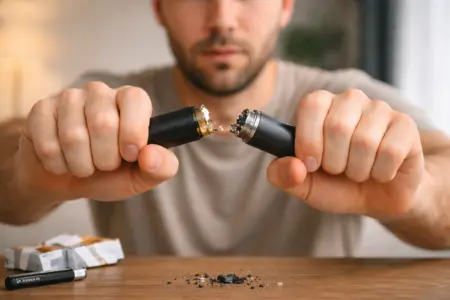
Strategies for Overcoming Shame and Blame
Table of Contents
One of the biggest barriers to people getting help for alcohol/drug addiction is the stigma associated with the disease.
9/10 people with mental health problems have reported experiencing stigma and discrimination in their lives.
Stigma is a negative attitude imposed by society on people who it judges as not ‘normal’. It is a reaction of fear, ignorance and prejudice.
Addiction is a disease of the brain, this is a scientifically proven fact, but the view of alcohol and drug addiction as a weakness and a moral failing is so ingrained in society that many will dispute scientific research. When the subject arises it is not uncommon to hear things like ‘her son’s an alchie, she must be a bad mother’ or ‘another junkie dead. So what?’
Effects of stigma in alcohol & drug addiction
- Discrimination,
- Shame and embarrassment, cause people to try to hide the disease,
- Isolation and exclusion,
- Reluctance to seek help which makes recovery slower and more difficult,
- Loss of job, home or family,
- Insurance companies are able to refuse payment for addicts,
- National health services may only offer the cheapest treatment possible, even if it takes longer to see results,
- Even after investing time and money in a once-successful employee, companies may ignore the problem until they have to fire them,
- The families of addicted people are also stigmatised which causes shame, anger and guilt within the family. The stress of this can lead to medical and social problems for spouses and children.
People with mental health illnesses often say that the stigma they experience is worse than the illness itself. Imagine if people with diabetes or cardiovascular disease were treated the same way!

Discover How We Can Help You
How to cope with the stigma of alcohol & drug addiction
Acceptance
Accept that you have an illness, a treatable illness and it’s not your fault. Recovery from alcohol and drug addiction is possible.
Attend a self-help group like Alcoholics Anonymous / Narcotics Anonymous
Attending Alcoholics Anonymous / Narcotics Anonymous meetings will open you up to a whole new fellowship of mutual support for your addiction. You are not alone. Persuade your family members to attend Al-Anon (a branch of AA that helps families deal with the effects of alcohol and drug addiction on their lives).
Seek expert treatment
At Castle Craig we find that the educational aspect of alcohol and drug rehab brings immense relief to our patients – suddenly they know what is wrong with them, they know it is not their fault, and they know they can get better and live normal lives without alcohol or drugs. The psychological therapy and support that they receive in treatment helps to build self-esteem and overcome destructive thought patterns that lead to relapse.
Don’t isolate yourself
Speak to family and friends about how you feel and your worries about your alcohol and drug problems. They will be grateful that you are opening up to them and can be of great support in the recovery process.
How Can Castle Craig Help?
Who will I speak to when I call Castle Craig?
When you call you will reach our Help Centre team who will give you all the information you need to help you decide whether to choose treatment at Castle Craig. If you decide that you would like to have a free screening assessment you will be asked a series of questions to build up a picture of your medical and drug use history as well as any mental health issues you are facing. If you decide you want to proceed with treatment you will be put in touch with our admissions case managers who will guide you through the admissions process.
How long is the rehab programme?
Residential rehab treatment starts at 4 weeks and can go up to 12+ weeks. Research shows us that the longer you stay in rehab and are part of the residential therapy programme, the longer the likelihood of continued abstinence and stable recovery.
How do I pay for rehab?
One concern we sometimes hear from people is how they will fund their rehab treatment. You can pay for treatment at Castle Craig privately, or through medical insurance, and some people receive funding through the NHS. The cost of rehab varies depending on what kind of accommodation you choose.
What happens at the end of my treatment?
Castle Craig thoroughly prepares patients before departure by creating a personalised continuing care plan which is formulated following discussions with the medical and therapeutic team. We offer an online aftercare programme which runs for 24 weeks after leaving treatment, in order to ensure a smooth transition back into your everyday life. Patients leaving treatment automatically join our Recovery Club where they can stay connected via our annual reunion, events, online workshops and recovery newsletters.

